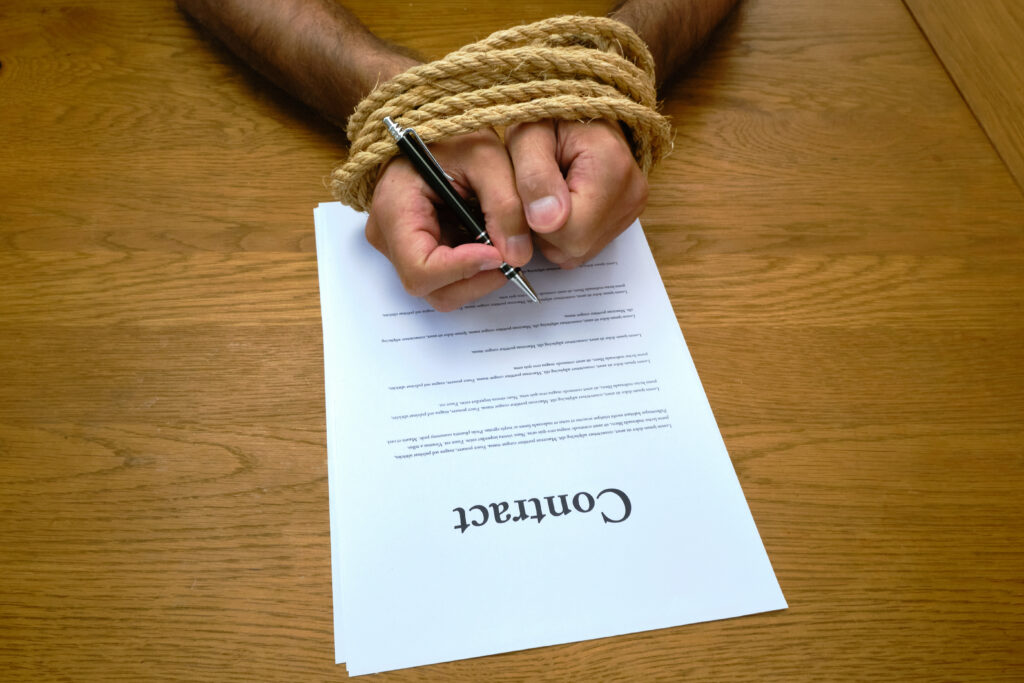Has a debt collector ever contacted you about a debt you don't recognize? Or hounded to pay an amount that seems inaccurate or unfair?
As a consumer, you have important rights when it comes to debt collection—and one of the most powerful tools in your arsenal is debt validation.
Debt validation refers to a consumer's right to request that a debt collector provide written verification of a debt they claim the consumer owes.
Under the Fair Debt Collection Practices Act (FDCPA), if you request validation within 30 days of a collector contacting you, they must cease collection activities and provide proof that you owe the debt before they can start collecting again.
This proof must include key details like the original creditor, the total amount owed, and an itemized accounting of any interest or fees added.
Seems straightforward, right? Yet many consumers don’t know their validation rights or don't take advantage of them. Unscrupulous collectors count on this. An experienced FDCPA attorney in California can assist you in defending your rights and achieving a fair outcome.
How Requesting Debt Validation Can Help Shield You from Unfair or Inaccurate Debt Collection
Some key benefits of requesting debt validation include:
- Ensuring a debt is yours. Debts are often sold and resold to different collection agencies, leading to errors. Requesting validation forces the collector to trace the chain of ownership back to the original creditor. If they can't, they don't have a valid claim.
- Confirming the amount is correct. Without an itemized breakdown, collectors may easily tack on unwarranted interest and fees. Debt validation requires transparency and can help you spot inaccurate or inflated amounts.
- Uncovering zombie debt. Some collectors try to revive very old debts that are past the statute of limitations and no longer legally collectible. Requesting validation exposes this and can get them off your back.
- Stopping harassment. Once you request validation, the FDCPA requires debt collectors to cease contacting you until they provide sufficient verification. This can provide much-needed relief from incessant calls and letters.
- Creating a paper trail. Having proper validation documentation from a collector can serve as important evidence if you need to dispute a debt, negotiate a settlement, or even bring a claim against an abusive collector.
What Is Debt Verification and How Is It Different From Debt Validation?
Let’s explain the difference between two similar-sounding but distinct concepts: debt validation and debt verification.

We discussed debt validation above, but what is debt verification and how does it play into the debt collection process?
Debt verification refers to a consumer's right to request proof of a debt from the original creditor, not a third-party collector. This right comes from the Fair Credit Reporting Act (FCRA), which allows consumers to dispute inaccurate information on their credit reports.
If a consumer sees an inaccurate debt on their credit report, they can file a dispute with the credit bureau. The bureau then contacts the creditor to verify the accuracy of the information. If the creditor cannot verify the debt, they must remove it from the consumer's credit report.
Debt verification can identify and correct errors on credit reports, such as debts that you paid off or that belong to someone else.
The Impact of Debt Validation and Debt Verification on Debt Collection
The key difference between validation and verification is who must provide proof of the debt.
Validation involves seeking proof from a third-party debt collector, while verification involves seeking proof from the original creditor.
Requesting debt validation can halt collection efforts until the collector provides proper documentation. Requesting debt verification, on the other hand, does not necessarily stop collection efforts.
However, if a debt cannot be verified, it must be removed from the consumer's credit report, which can improve their credit score and make it easier to obtain credit in the future.
For consumers facing debt collection, it's important to know when and how to use both debt validation and debt verification.
Requesting validation starts the process of dealing with a questionable debt or a potentially unscrupulous collector. Requesting verification can ensure that a creditor only reports accurate information on one's credit report.
In either case, hire an experienced consumer protection attorney. A knowledgeable lawyer can explain your rights, draft effective validation and verification requests, and take legal action if necessary to protect your interests.
How a Consumer Protection Lawyer Can Help You in Your Request for Debt Validation
How exactly do you go about requesting debt validation? While you can do it verbally, your lawyer may send a written debt validation letter within 30 days of a collector's first contact. This letter should clearly state that you dispute the debt and request validation, and specifically detail what proof you want them to provide. Sending it via certified mail provides proof they received it.

What happens next depends on how the debt collector responds. Ideally, they will provide complete validation details and you can resolve the debt appropriately. However, some unethical collectors may ignore a validation request and continue aggressive collection efforts. Others may send incomplete or suspicious-looking proof.
If a debt collector fails to properly validate a debt, continues to harass you after receiving a validation request, or violates your rights in any other way, a skilled FDCPA lawyer can fight back. They can communicate with the collector on your behalf, advise you of your options, and hold unscrupulous collectors accountable for their actions.
In some cases, you may even file a claim against an abusive collector and recover monetary damages.
At Kazerouni Law Group, we've helped countless consumers use debt validation to shield themselves from unlawful collection practices. We've seen firsthand how sending a clear, properly crafted validation letter can stop harassing calls in their tracks. When a collector fails to comply with validation requirements or violates the law in other ways, we stand ready to pursue justice on our clients' behalf.
We know the ins and outs of the FDCPA and other consumer protection laws, and we put that knowledge to work to protect our clients from deceptive, unfair, and abusive debt collection practices.
Whether it's disputing an invalid debt, bringing an FDCPA claim against a collector, or negotiating an appropriate resolution, we fight tirelessly for consumers' rights.
Contact Kazerouni Law for Help
If a debt collector contacted you about a questionable debt or subjected you to harassment, don't hesitate to request validation of the debt, but don't go it alone. Contact an experienced California consumer protection attorney at Kazerouni Law Group.
Arming yourself with knowledge and having an advocate on your side can make all the difference in defending your rights and achieving a fair outcome.
At Kazerouni, we believe every consumer deserves fairness, dignity, and respect. We've built our practice around empowering consumers to assert their rights against powerful financial interests. Debt validation is just one tool we use to level the playing field and ensure unscrupulous collectors don't victimize our clients.
We offer free consultations where we can review your situation, advise you of your options, and discuss how we can assist you. Call our firm at 800-400-6808 or contact us online today to take the first step toward protecting your rights and restoring your peace of mind.